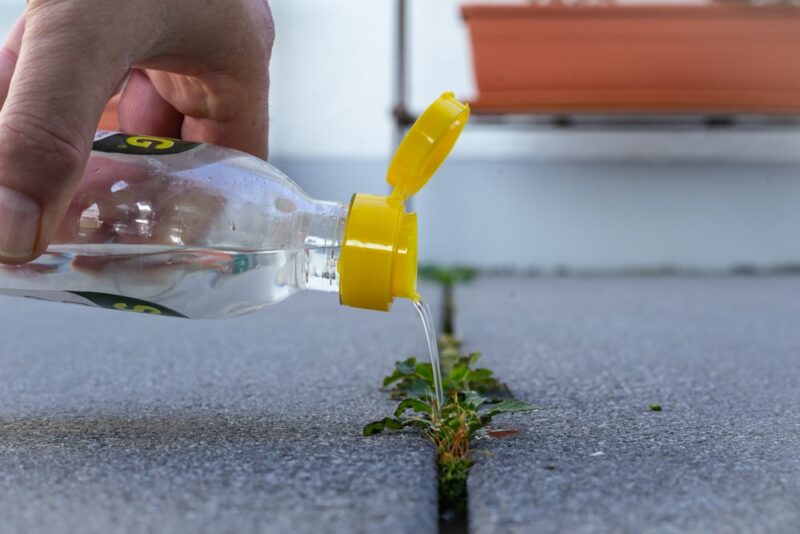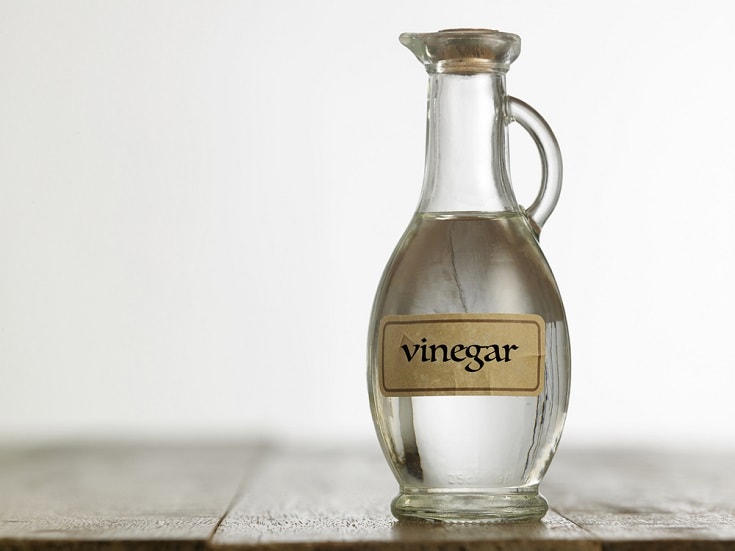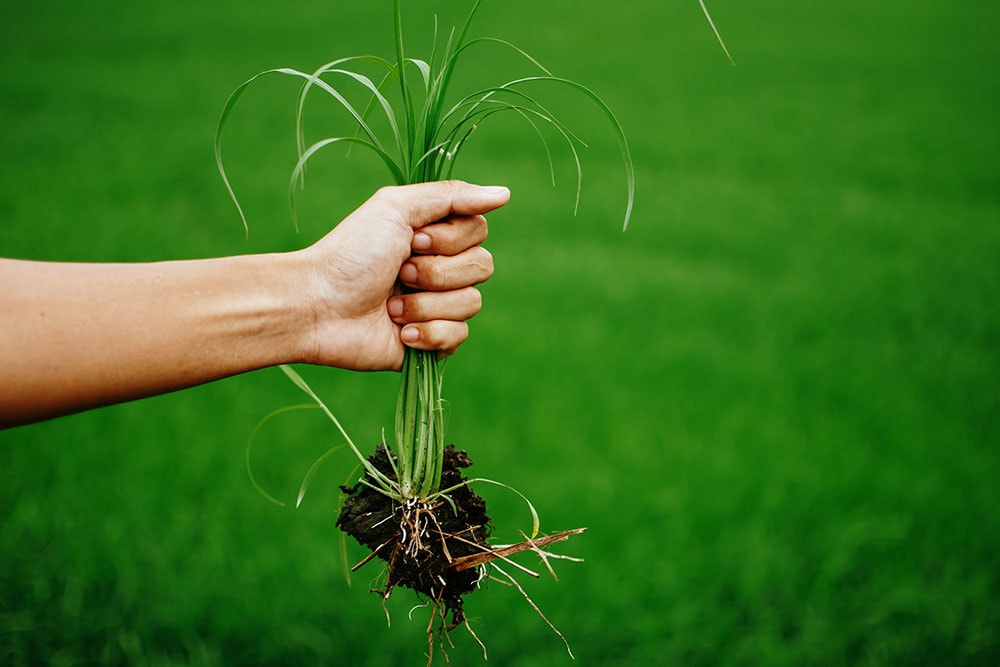Does Vinegar Kill Weeds to the Root? Know Before You Use It!
-

- Last updated:

Vinegar is a well-known method for safely killing weeds to the root. However, it’s not as nearly as fast-acting as other methods, so you should expect vinegar to take some time, effort, trial, and error. But if you’re up for the challenge and committed to getting rid of those pesky weeds, read on!
In this article, we’ll take a look at why vinegar is effective against weeds, what kind of vinegar to use, how to apply it correctly, and more. So, let’s dive in and get started on your weed-free journey.

What’s the Holdup?
We all want our weed-killing efforts to work right away. But that just isn’t how regular household vinegar operates. It plays by its own rules, meaning you’ll have to be patient if you want to kill weeds without having to resort to toxic chemicals.
In fact, there’s a very likely chance that you will have to repeat the vinegar process more than once to get the results you want.
But if patience isn’t a virtue you possess, you can always ditch that plain white vinegar you’re using and switch to horticulture vinegar.1 The difference? Its acidity content is 10 percent higher, meaning it will burn just about any weed to the roots without issue. Just make sure you don’t use it on anything in your house!

Do Weeds Grow Back After Vinegar?
It depends. Vinegar is bad news for small weeds, but the roots of larger weeds can and will put up a commendable fight—so much so that you might have no other choice but to surrender to their persistence and switch to a more potent weed killer.
That being said, if you’re persistent enough and keep reapplying vinegar every few weeks, there’s a strong chance you’ll be able to win this battle of the weeds.2
Will Pouring Straight Vinegar on Weeds Kill Them?
It certainly can. It really depends on the weed and its persistence. Some weeds just don’t die easily, so you might need an equalizer to level the playing field. Don’t worry; you don’t have to switch to harsh chemicals—at least, not yet.
Instead of using vinegar on its own, add some dish soap. This will help the vinegar penetrate the weed’s cell structure and cause it to dry out.
To use these two safe methods together, you first need to get yourself a gallon of vinegar (make sure its acetic acid content is 5%). You also need 1 ounce of dish soap and a spray bottle.
If you’ve DIY’d anything in your life, you know what comes next—you’re going to need to mix the soap with the vinegar and dump it into the spray bottle.
Pro Tip: Add the dish soap to the gallon of vinegar—container and all. But instead of pouring your new mixture into the spray bottle, simply unscrew the sprayer from the bottle and screw it onto the gallon jug.
More often than not, the threads on these kinds of things are interchangeable. Now you have your own handy weed killer. That means fewer trips back in the house for refills and more weed-killing fun outside.

The 4 Tips to Successfully Kill Weeds With Vinegar
Before you get started, there are some very important things to keep in mind.
- The most important thing is that you should only use vinegar on one weed at a time. It’s not as effective when used against multiple weeds, so it’s best to focus your efforts and make sure you’re using the right amount of solution for each weed.
- Pour the vinegar directly onto the weed, as opposed to spraying it over an area. The other reason for this is that vinegar isn’t a selective formula like some store-bought weed killers. That means that even desirable plants can be affected by it, so you have to take extra care when applying it.
- Vinegar and dish soap will often kill small weeds in as little as 24 hours, but larger, more stubborn weeds may take a few days or even weeks to die completely.
- Finally, always apply vinegar on a sunny day and wait for the weeds to die completely before attempting to pull them out of the ground. If you give it enough time, it should come right out, root and all!

Conclusion
Getting rid of weeds can be a challenge, especially if you don’t want to resort to using harsh chemicals. But with some patience and the use of vinegar or a mixture of vinegar and dish soap, you’ll be well on your way to having a weed-free garden.
Featured Image Credit: byrichardduebell.com, Shutterstock
Contents
